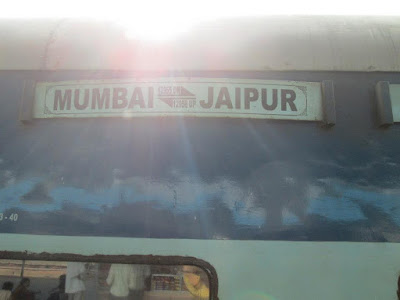There's something about India, I mean I know it has many faults (the rich/poor divide, the cast system, rape etc.) but there's something about this place... the life, the colour, the vibe. It just feels nourishing in someway, not so much in the busy towns but in the small rural villages near Ranthambore and Bharatpur; I feel like these places are nourishing to the soul somehow. I can't wait to someday go back to India, and explore vast landscape I haven't yet seen. It has a piece of my heart.
Blurry picture but the only group shot I have with all of my family who came, plus our new extended family thanks to my sisters marriage to Pratham (back right)
I went to meet my family in India for a few weeks of traveling, chilling, experiencing real Indian culture, soaking up all the sun and all the love. We started in Dehli, then we complete the Golden Triangle over 2 weeks before spending 1 week in Goa. It was a good mix of exploring, relaxing, soaking in the culture and catching up with family, some I'd never met and some I hadn't seen for 6 months while I'd been in Australia.
I found this great summary of India on worldtogethertravel.com, it's well worth a read if you're unsure about going there:
"India’s astounding diversity of religions, languages, and cultures is unique and unparalleled. The society of vast subcontinent, varied and complex in its rich heritage, is among the oldest in the world.
Five thousand years of history have nourished the growth of a great civilization. It has been vitalized through cross-cultural contact and characterized by unity in diversity of culture and race, caste, religion, and language. In India there are examples of virtually every known type of societal division; six major religions- Hinduism, Islam, Sikhism, Christianity, Buddhism, and Zoroastrianism; two major language families- Aryan and Dravidian, with 18 official languages and innumerable dialects and tribal languages; three racial strains- Aryan, Dravidian, and proto-Australoid; and over 4000 castes, hierarchically ranked, endogamous, and occupational.
Gandhi’s dream had always been to create a modern India that would offer Asia and the world a living example of his social ideals. To his followers, those ideals still constitute a lifebuoy thrown out to mankind by a strangely sane old man in a world going mad. The Mahatma was wholly opposed to those who argued that India’s future lay in imitating the industrial and technological society that colonized her. India’s salvation he argued “lay in unlearning what she has learned in past decades.” He challenged almost all the Western ideals that had taken root in India. Science should not order human values, he argued, technology should not order society, and civilization was not the infinite multiplication of human wants but their deliberate limitation to essentials that could be equitably shared by all.
Culturally diverse and complex, with mainly rural, traditional, and agrarian population, India now is also a major industrial power experiencing rapid urban growth and rural-urban migration. The shadows of a vibrant consumer society are taking shapes and urban population is exposed to massive change in life style, consumption habits, and cultural conditioning.
These are certainly the times of doubts and chaos as what is on the big move is not merely an economy but also a society that represents one of the most ancient civilizations of the world. India is not simply the largest democracy in the world; majority of its population is of young people with ever growing aspirations. In her 5000 years of history, Indians never failed in creating a definite order in the psychic vibrations of their younger generations and the generations to come, but now in an era of Globalization and rapid economic growth, what course the history takes remains to be unfolded."

Old Dehli
The boy not quite blown away by that white building over there...
Aryan not interested in the detail on the marble walls of the Taj Mahal...
Being part of my sisters Hindu wedding was a special experience:
The beautiful bride!
Loved these colourful trucks!
The food that introduced me to the term 'Dehli belly' - makes me feel quite sick even looking at it now. At one point this guy came over and poured melted butter and sugar over different areas of my plate... I thought I'd better try it ya know...
I tell ya if you're a white girl and want a bit of attention - go to India. Flocks of children, men and women randomly gather around you asking for photos, strange.
Making up for lost time with this little stud!
Having Aryan on my lap while I sit on my mum's lap on the bumpy ride back to the hotel.
Puppies everywhere!
It was great catching up with my friends Kate and Tom. So great!
Good times exploring Goa on a moped.
Those long train rides...
When Aryan first became friends with his shadow.
My little Aryan taking in the new sights, saddened by the poverty.























































